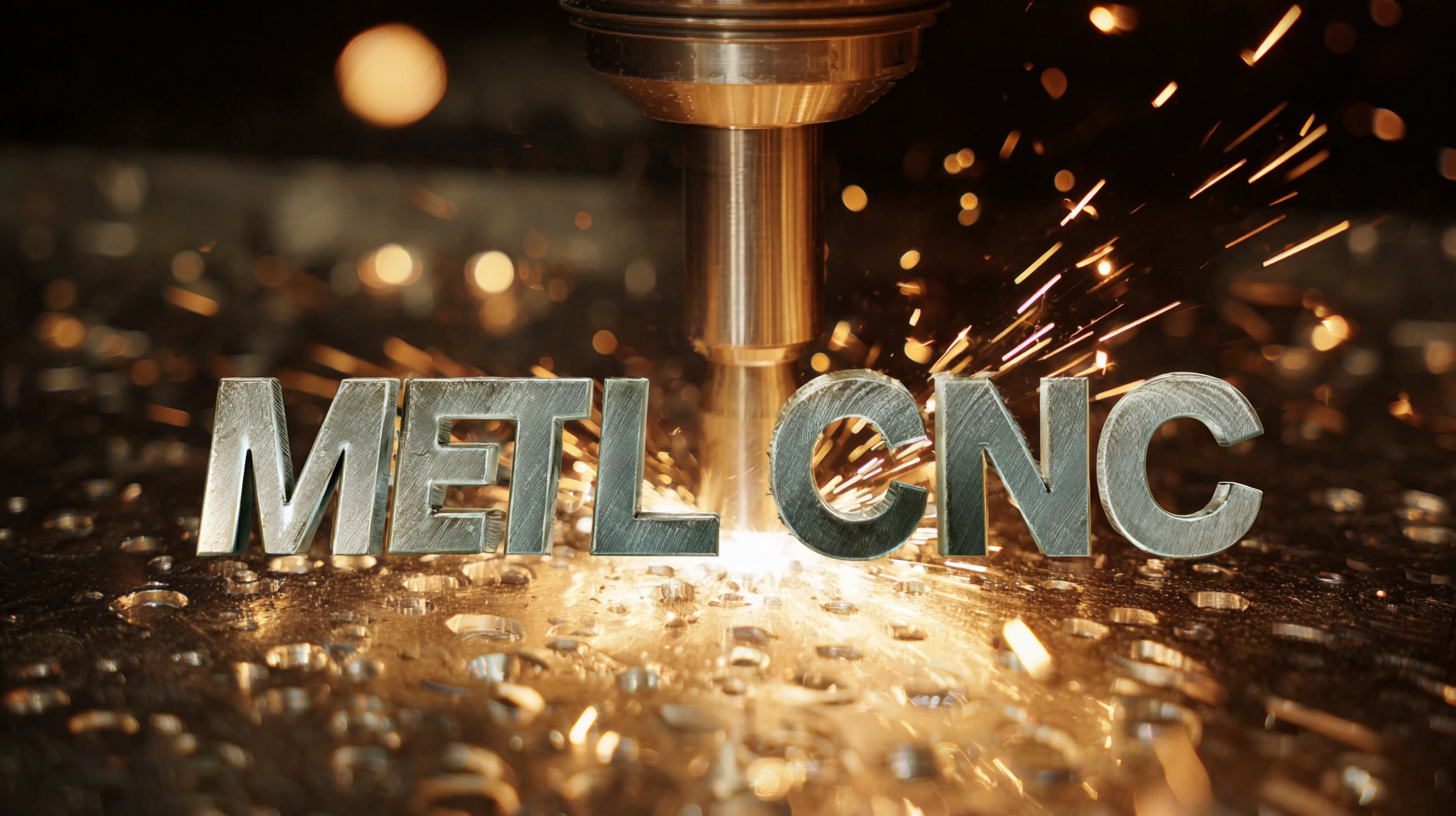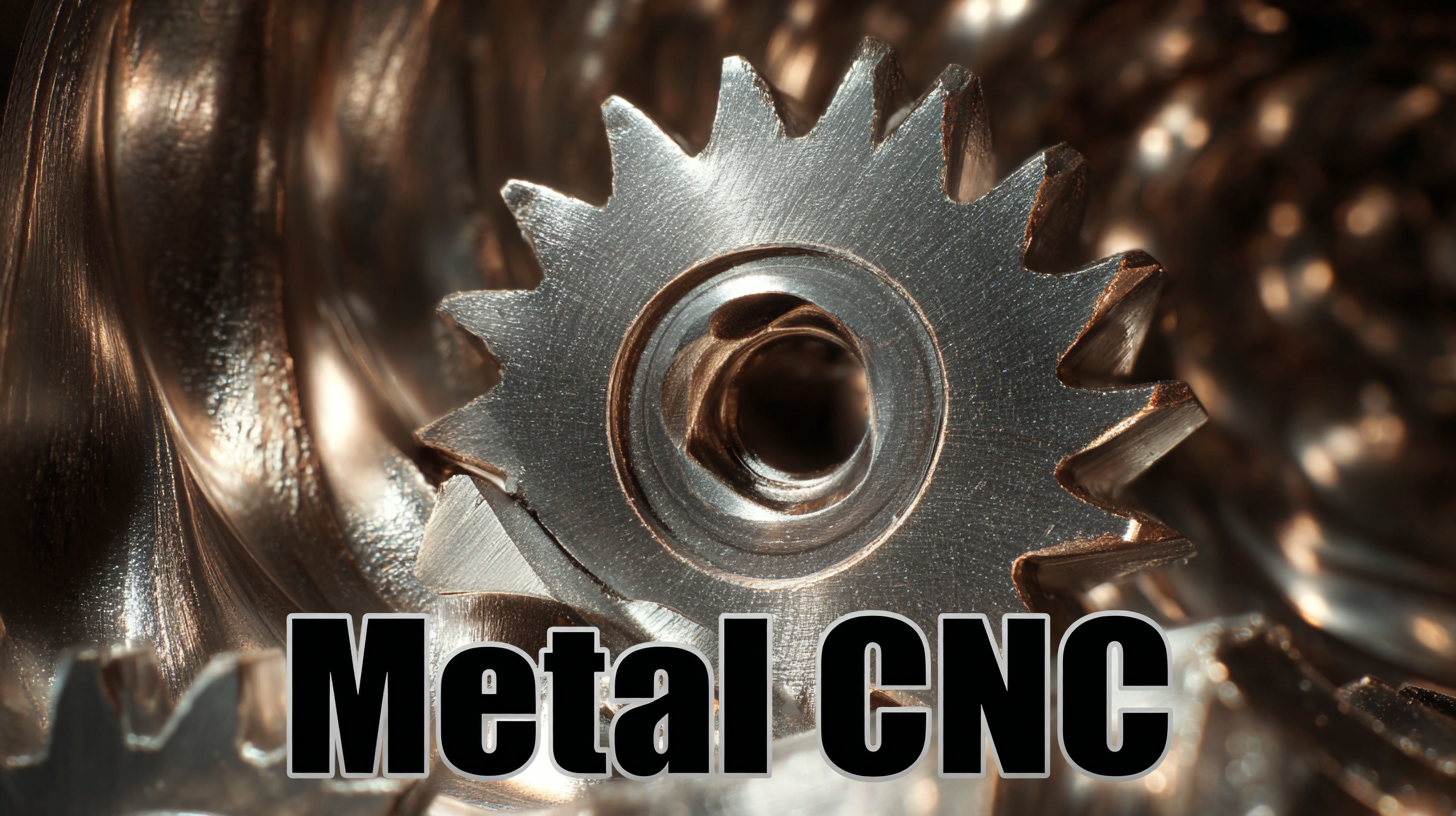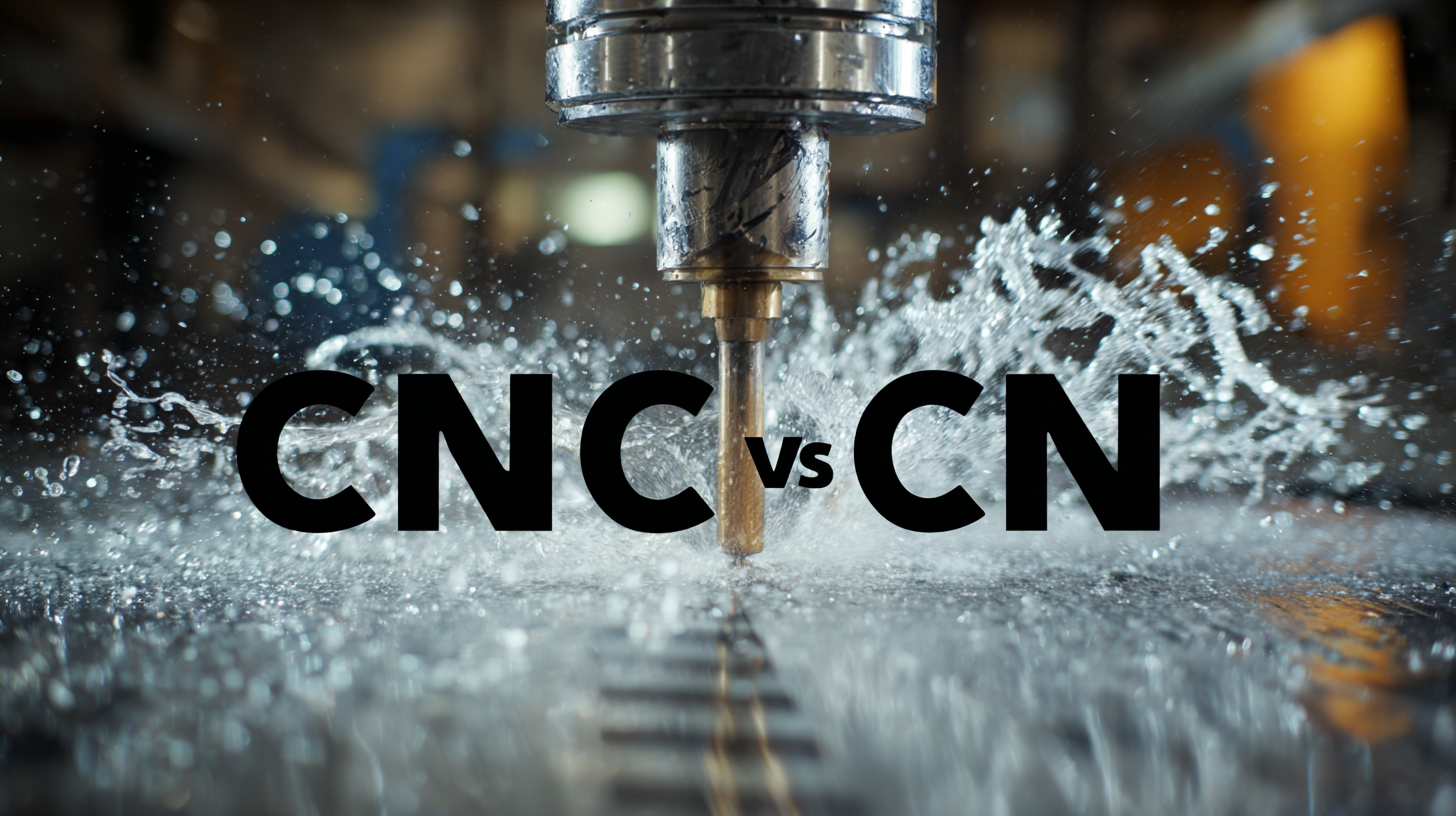
- sales@bjbod.com
- Mon - Sat at 7:00AM to 9:00PM

In the rapidly evolving landscape of manufacturing, selecting the right Metal CNC machine is critical for optimizing production efficiency and staying competitive. According to a recent report by MarketsandMarkets, the global CNC machine market is projected to reach $100 billion by 2025, driven by the increasing demand for precision machining in sectors such as aerospace, automotive, and electronics. Additionally, a survey by Deloitte highlights that 70% of manufacturers believe advanced CNC technology will enhance their capabilities and streamline operations. As advancements in automation and smart technologies continue to reshape the industry, making informed decisions about Metal CNC machines is paramount for manufacturers looking to adapt to these changes and meet their production goals. This blog will delve into vital factors to consider while choosing the best Metal CNC for your specific needs, ensuring you remain at the forefront of the evolving manufacturing landscape.

Choosing the right metal CNC machine for your manufacturing needs is crucial for optimizing production efficiency and ensuring quality output. When selecting a machine, one of the key factors to consider is the type of materials you will be working with. Different CNC machines are designed to handle specific types of metals, such as aluminum, steel, or titanium. Understanding your material requirements will help you select a machine that offers the right speed, precision, and durability.

Another important consideration is the size and complexity of the parts you intend to manufacture. CNC machines come in various sizes and capabilities, ranging from desktop models for small components to industrial-grade machines for large parts. Assessing the dimensions and intricacy of your designs will guide you in choosing a machine that can accommodate your production demands while maintaining accuracy. Additionally, think about the level of automation required, as some machines offer advanced features like automatic tool changers or integrated software for streamlined operations, which can significantly enhance productivity.
When choosing the right metal CNC machine for your manufacturing needs, understanding the various types available and their respective pros and cons is crucial. Traditional CNC milling machines offer precision and versatility, making them suitable for a wide range of applications. Their robust construction often ensures long-term reliability, but they can be cost-prohibitive and require more space. Additionally, the need for skilled operators can increase overall operational costs.
On the other hand, CNC laser cutting machines offer an efficient alternative for cutting and engraving various metal materials. They provide high-speed operations and excellent precision, which can significantly enhance production efficiency. However, they may face limitations in thickness and can be expensive to maintain. Lastly, plasma CNC machines are a popular choice for thicker materials, combining affordability with speed. Yet, they may not achieve the same level of detail as milling or laser machines. Assessing these factors in relation to your specific manufacturing goals will help you select the best CNC machine for your operations.
When selecting the best CNC technology for metal manufacturing, a comparative analysis reveals the strengths and weaknesses of routers, lasers, and plasma systems. Each technology offers distinct advantages depending on the specific requirements of your projects.
Laser CNC machines are renowned for their precision and versatility, making them ideal for intricate designs and cutting thin materials. They produce cleaner cuts with minimal heat-affected zones, which is essential in maintaining the integrity of delicate components. On the other hand, plasma CNC is often favored for its speed and effectiveness in cutting thicker materials, making it an excellent choice for heavy-duty applications. For those looking for cost-effective solutions with reasonable precision, CNC routers are a viable option, particularly for wood or softer metals.
**Tips:** When evaluating CNC technologies, consider the material type and thickness you frequently work with. Always assess the operational costs associated with each technology, including maintenance and consumable supplies. Finally, if your projects involve advanced packaging materials, such as glass substrates, pay close attention to developments in laser technology that are being showcased in industry events, as they can influence your manufacturing efficiency.
When selecting the best metal CNC machine for your manufacturing needs, it's essential to strike a balance between cost and features. According to a recent industry report, CNC machine prices can range widely, from $10,000 to over $100,000, depending on specifications and capabilities. Buyers should evaluate what features are critical for their applications, such as spindle speed, precision, and material compatibility. For instance, a machine capable of high-speed machining might come at a premium, but can significantly reduce production time and costs in the long run.
Efficiency is another crucial aspect to consider, as seen in the recent discussions on energy consumption in various sectors. Just as power companies are urged to balance regional energy demands, manufacturers should analyze the efficiency of their CNC systems. Integrated technologies that offer both performance and energy efficiency can lead to better operational outcomes. Recent trends show that manufacturers prioritizing machines with advanced features, such as AI-driven automation, experience lower operational costs, even if their upfront investment is higher. Therefore, assess your budget against the potential long-term savings these advanced features can provide.
| Dimension | Low Cost Option | Mid-Range Option | High-End Option |
|---|---|---|---|
| Initial Cost | $5,000 | $15,000 | $50,000 |
| Maximum Material Size | 24" x 24" | 48" x 48" | 120" x 60" |
| Cutting Speed | 50 ipm | 150 ipm | 300 ipm |
| Spindle Power | 1.5 HP | 5 HP | 15 HP |
| Software Included | Basic CAD/CAM | Intermediate CAD/CAM | Advanced CAD/CAM + Simulation |
| Warranty | 1 year | 2 years | 5 years |
When selecting a metal CNC machine, understanding the maintenance and support options available is crucial for ensuring longevity and optimal performance. According to a report by the Association for Manufacturing Technology, nearly 30% of machine downtime in manufacturing environments can be attributed to inadequate maintenance. This highlights the importance of choosing a CNC provider that offers comprehensive maintenance packages, including regular inspections and emergency repair services. A well-structured maintenance plan can significantly reduce operational disruptions and extend the life of your CNC equipment.
Additionally, the availability of reliable technical support is vital. A recent survey by the Precision Metalforming Association revealed that 60% of manufacturers reported that prompt technical assistance dramatically influences their satisfaction with CNC machines. When evaluating CNC providers, look for those who offer 24/7 support and a robust online resource library that can help troubleshoot issues quickly. Investing in machines backed by solid support and maintenance options not only enhances productivity but also leads to a better return on investment over time.
